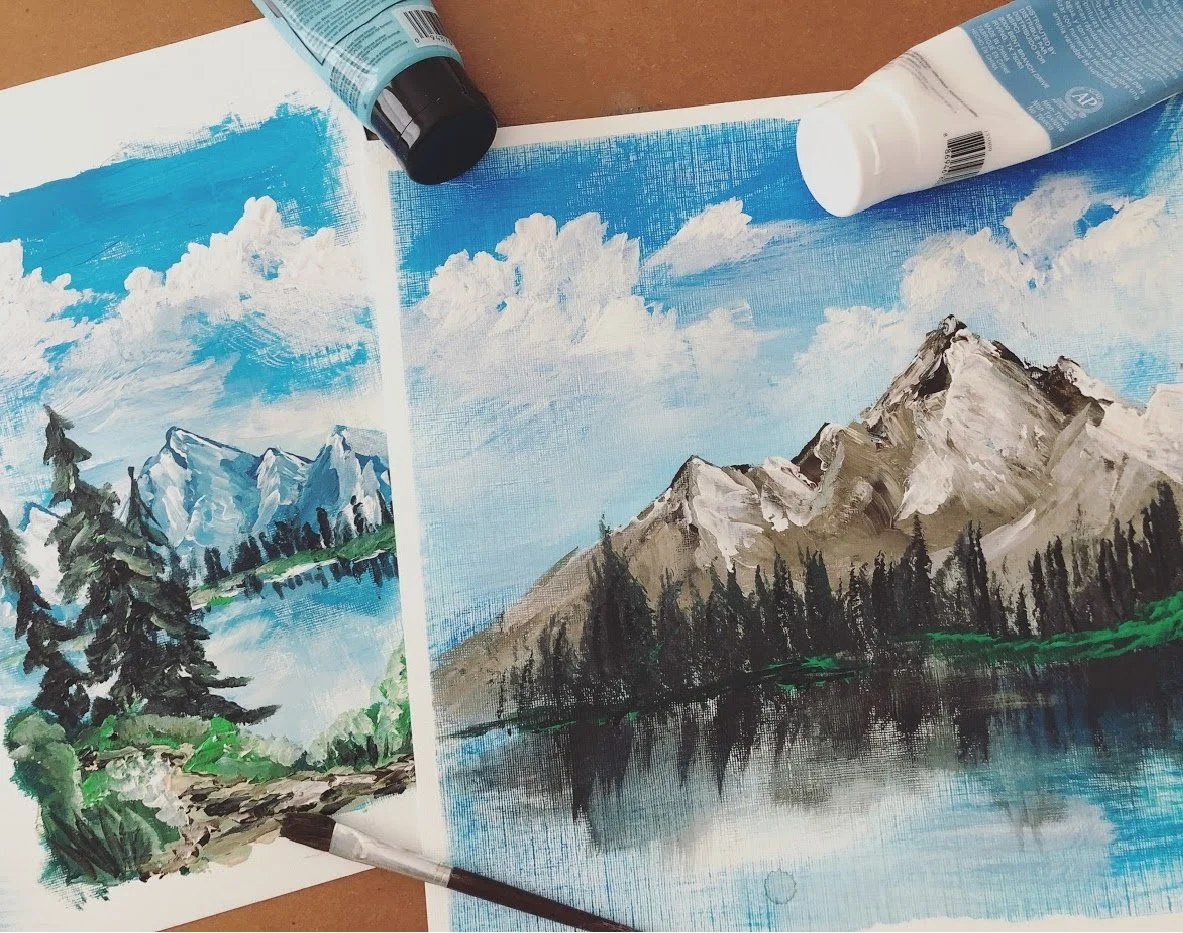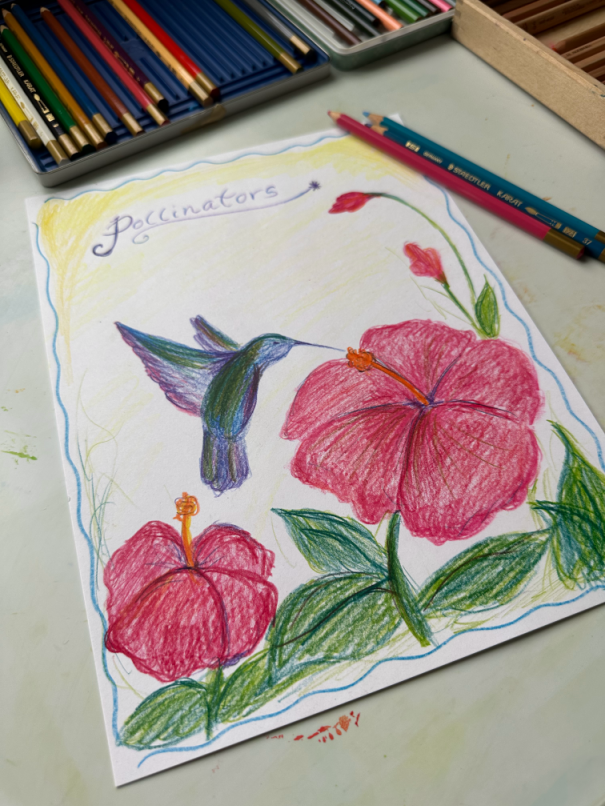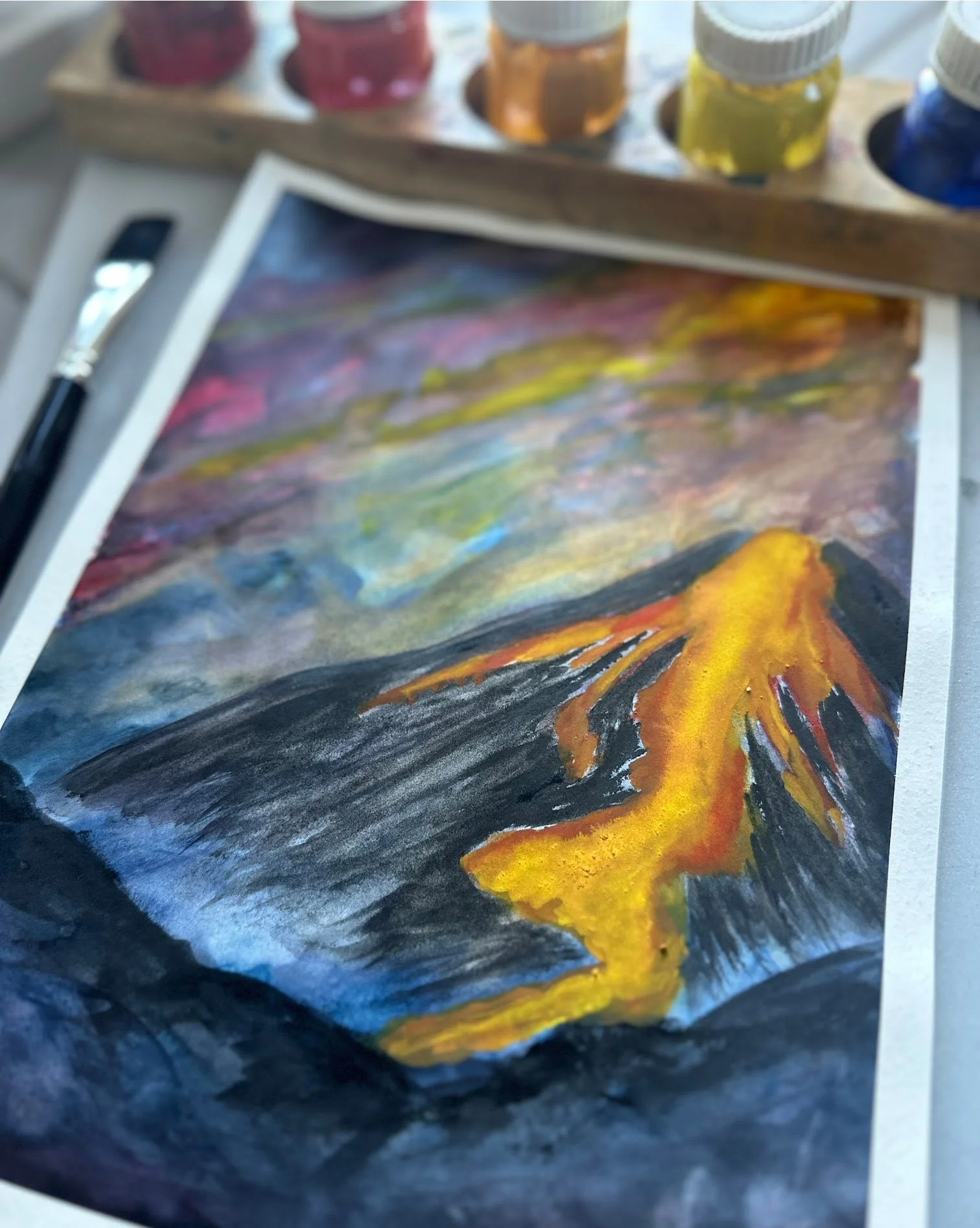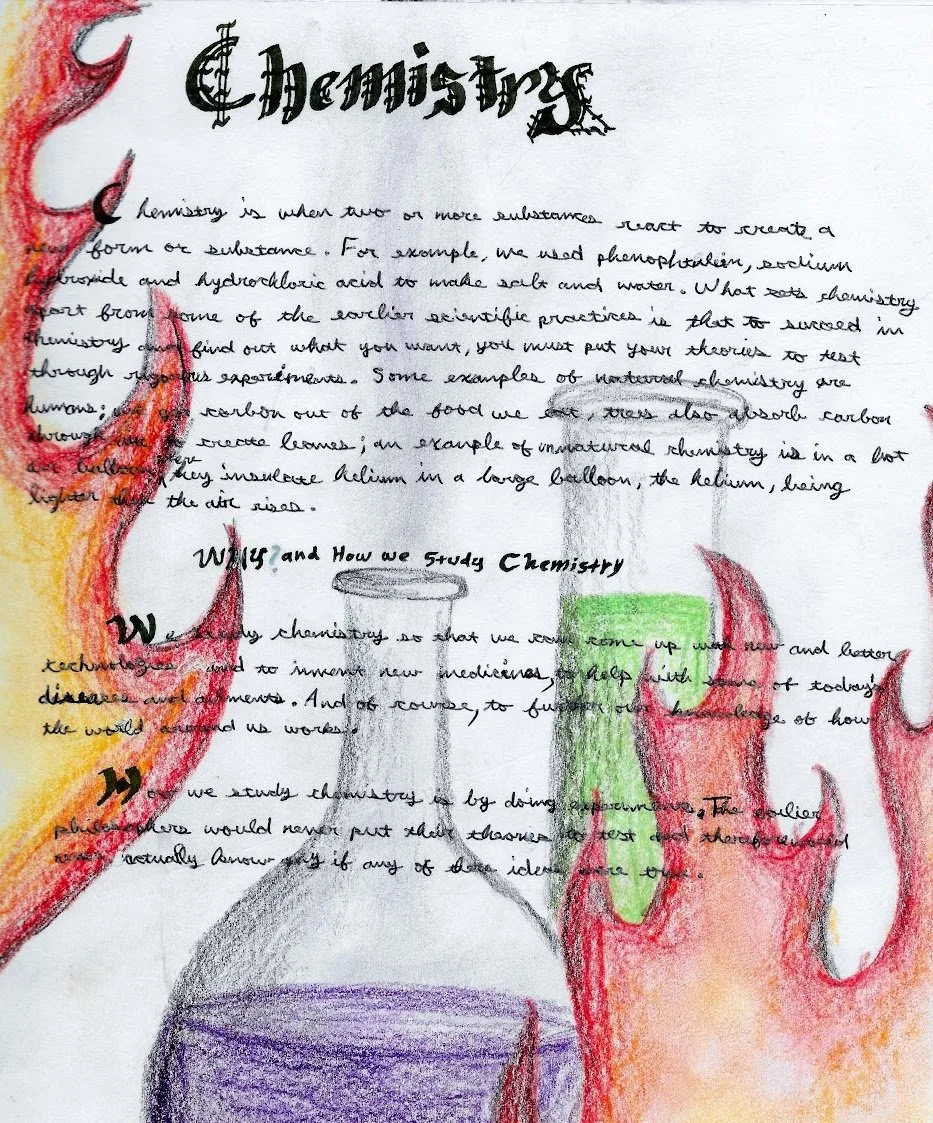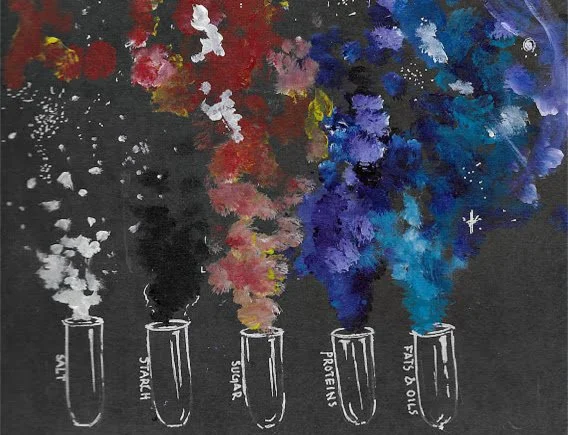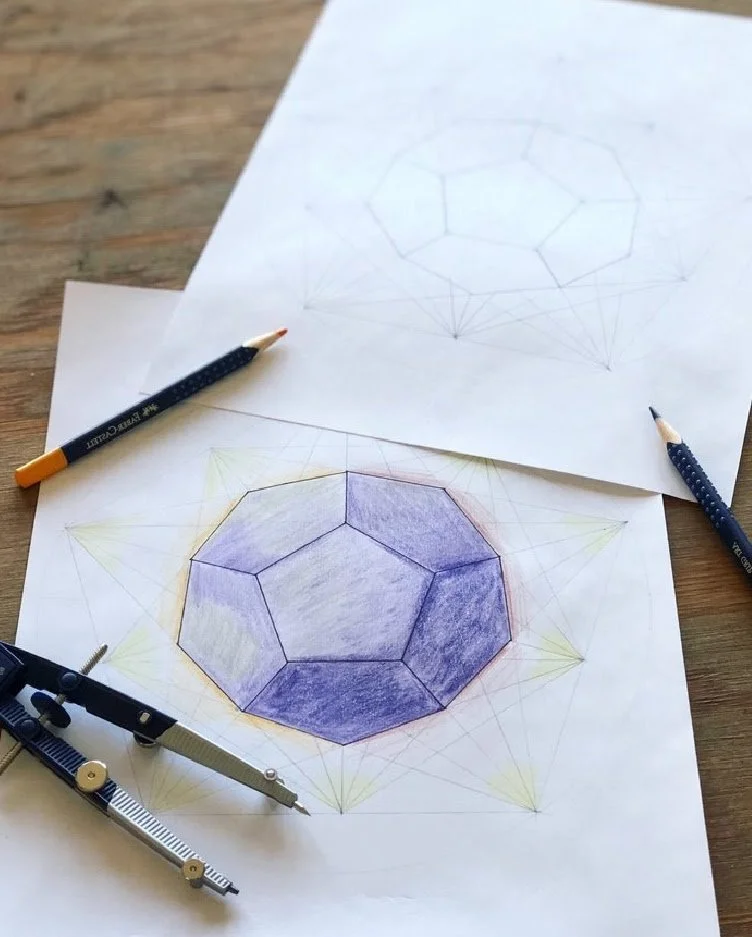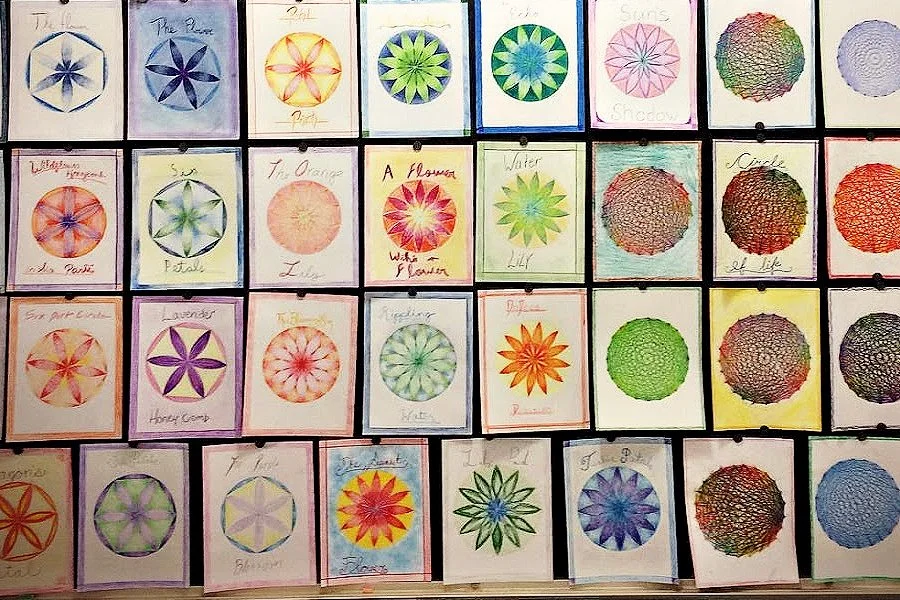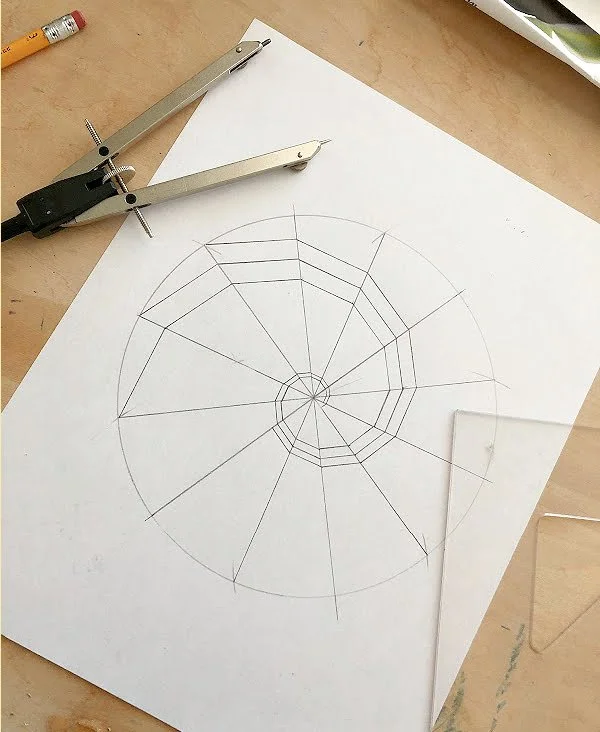Upper Grades Curriculum Resources from Waldorfish
Let’s dive into the Waldorf upper grades curriculum resources available here at Waldorfish.com!
Through art, science, and geometry, Waldorf upper grades curriculum (for grades 5-8) meets the growing student right where they are in their transformation from child to teen.
From online homeschooling courses to pedagogical resources, Waldorfish can help you gain confidence in teaching your middle school student, and enjoying the process along the way!
Art Resources
Art is an integral part of Waldorf upper grades curriculum, and is woven into nearly every subject of study. New techniques and mediums are introduced throughout grades 5-8, all designed to enrich the student’s connection to artistic skills, build their understanding of the natural world, and find their own style and method of expression. Check out all of our art resources, and explore the courses we offer that will support you through your upper grades art journey!
On the blog…
Explore why Waldorf education utilizes chalk drawings as a way to enliven the classroom and the curriculum.
Perspective Drawing- Art in the Middle Grades
Why are perspective drawing techniques introduced in seventh grade? It’s all about point of view!
Black and White Drawing- Art in the Middle Grades
Discover why drawing with charcoal perfectly meets the developmental experience of the growing middle school student.
Waldorf Art: How is Art Incorporated into the Waldorf Middle Grades 5-8?
From pencil drawing, to clay work, to watercolor painting, we’ve got your guide to all things Waldorf upper grades art.
Full support from our courses…
Make Waldorf art lessons a part of your weekly rhythm! With 33+ lessons, including watercolor painting, crayon drawing, chalk, and more- we’ve got everything ready to get you started!
*Enrollment opens August ‘24.
Join us in the next step of your artistic journey, with new skills including clay work, perspective drawing, and grade-specific art lessons for grades 4-8!
For the high school student or experience artist, this course includes a deeper dive into techniques, and new experience with acrylic painting, ink work, and more!
Science Resources
In Waldorf education, science becomes a focused area of study in the middle grades. The students are ready to explore the world in a whole new way, and begin to dive into the subjects of Botany, Physics and Chemistry, Geology (and more!). With all this new and exciting curriculum, the educator also needs to make a shift in their teaching approach to foster the growth and thinking skills of their students. We’ve got everything you need to get started in your journey through upper grades science curriculum: from free resources, to paid courses, we’ve got you!
On the blog…
Is Waldorf Botany Academic as Well as Artistic?
Can science and art work hand in hand? In Waldorf Botany curriculum, the two meld together to create a enriching curriculum for the growing child.
Waldorf Fifth Grade Botany: Growing with the Child
Enjoy an in-depth look at how Waldorf Botany curriculum meets the growing child through storytelling, art, hands-on demonstrations, and more!
Waldorf Botany: Adapting the Curriculum to Your Region
Explore nine doable and meaningful ways to adapt the Botany curriculum to your region.
The Waldorf Geology Block: Curriculum for the Transforming Child
How does geology curriculum meet the changing sixth grader? From a deep exploration of the earth’s structure, to enriching artistic and hands-on experiences, the study of the earth perfectly meets the transforming child!
Science in the Waldorf Middle School: Starting Something New
With the introduction of formal science curriculum in the Waldorf middle grades, the methods of learning and teaching change for the students and educators alike!
Waldorf 8th Grade Organic Chemistry: In the Kitchen!
In Waldorf education, the study of organic chemistry begins in the kitchen! Discover how cooking bridges the gap between abstract learning to concrete examples, and how doing inspires the growing eighth grader.
Waldorf Science: What is a Phenomenological Approach to Teaching?
Enjoy our in-depth guide to a phenomenological approach to teaching science, which fosters a sense wonder, observation, and critical thinking in the growing child.
3 Tips: Teaching Waldorf Science Curriculum
How can an educator enliven their approach to teaching Waldorf science curriculum, while working through a phenomenological lens? We’ve got three tips for you.
Full support from our courses…
Our Botany course provides over 75 videos of instruction, main lesson book page tutorials, hands-on demonstrations, original stories, art lessons, and so much more!
Our Physics courses (grades 6-8) and Chemistry courses (grades 7 and 8) provide enough material for your entire school year, as well as detailed supply lists, step-by-step demonstrations, and much more.
Designed for the sixth grader, our Geology course provides everything you need for a deep-dive into the study of the Earth including over 75 lesson videos, main lesson book page tutorials, a fully-designed research project, and so much more!
Geometry Resources
An exciting aspect of the curriculum begins in the Waldorf middle grades: Geometry! Weaving together math and art, geometry begins as a freehand experience in fifth grade, and evolves in its complexity all the way through eighth grade and beyond. Explore our resources and courses that provide everything you need to bring artistic geometry into your student’s middle school experience- enjoy!
On the blog…
Waldorf Geometry: Math in the Middle Grades
Explore how Waldorf geometry curriculum evolves with the growing child from fifth through eighth grade. Starting from freehand experiences and ending with complex, abstract study, geometry deeply enlivens the middle schooler’s experience.
Waldorf Geometry: How it Meets the Sixth Grader
In sixth grade, Waldorf geometry curriculum meets the growing child in their quest to understand cause and effect, discover their unique artistic style, and find order in the natural world.
Waldorf Geometry: How Can I Incorporate Art into a Traditional Geometry Curriculum?
In Waldorf geometry curriculum, mathematics and art weave together to create a rich academic and artistic experience for the middle school student.
Waldorf Geometry: Why Do We Wait Until Sixth Grade to Introduce Tools?
A compass and straightedge are introduced to Waldorf geometry class in sixth grade. Why? The student is now ready to deepen their understanding of the subject through the use of these simple and ancient tools!
Full support from our courses…
Where art meets math! Our geometry courses for grades 5-8 provide everything you need for a full year’s curriculum! Each grade’s course provides step-by-step demonstrations, instructor support, lifetime access, and much more.
We’ve shared a lot, so feel free to send us a message here- we’re happy to answer any questions and help find the best course for your family!
About the Authors
Robyn Beaufoy is Waldorfish’s CEO, and a course instructor for two of our courses - Waldorf Art for Beginners and Weekly Art Foundations. You’ll find her intuitive touches and influences throughout everything Waldorfish offers! Robyn has been in the world of education for almost 30 years, with an MA in Education and a certification in Waldorf teaching - she also homeschooled both of her children. In 2012 Robyn co-founded Waldorfish.com, creating it with the vision of making Waldorf inspired-art and pedagogy more accessible, joyful, and doable to homeschoolers all over the world.
Caitlin Amajor is Waldorfish’s course instructor for Geometry grades 5 & 6, and Botany, as well as our Administrative Assistant. From a young age, Caitlin has been immersed in Waldorf education, attending a Waldorf school from K-8. After receiving a BA in History, Caitlin gained her certification in Waldorf teaching, and spent seven years as a Waldorf class teacher in the upper grades. With a special fondness for watercolor painting and geometry, Caitlin loves bringing Waldorf education to her students all over the world, and seeing their own individuality and style bloom from the curriculum!






